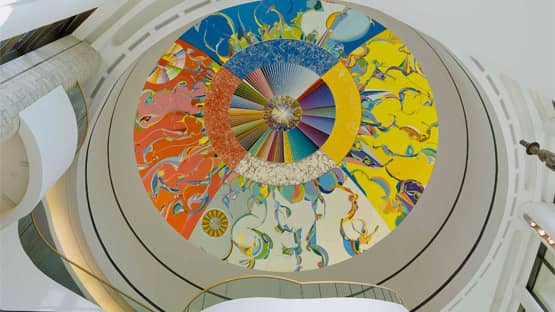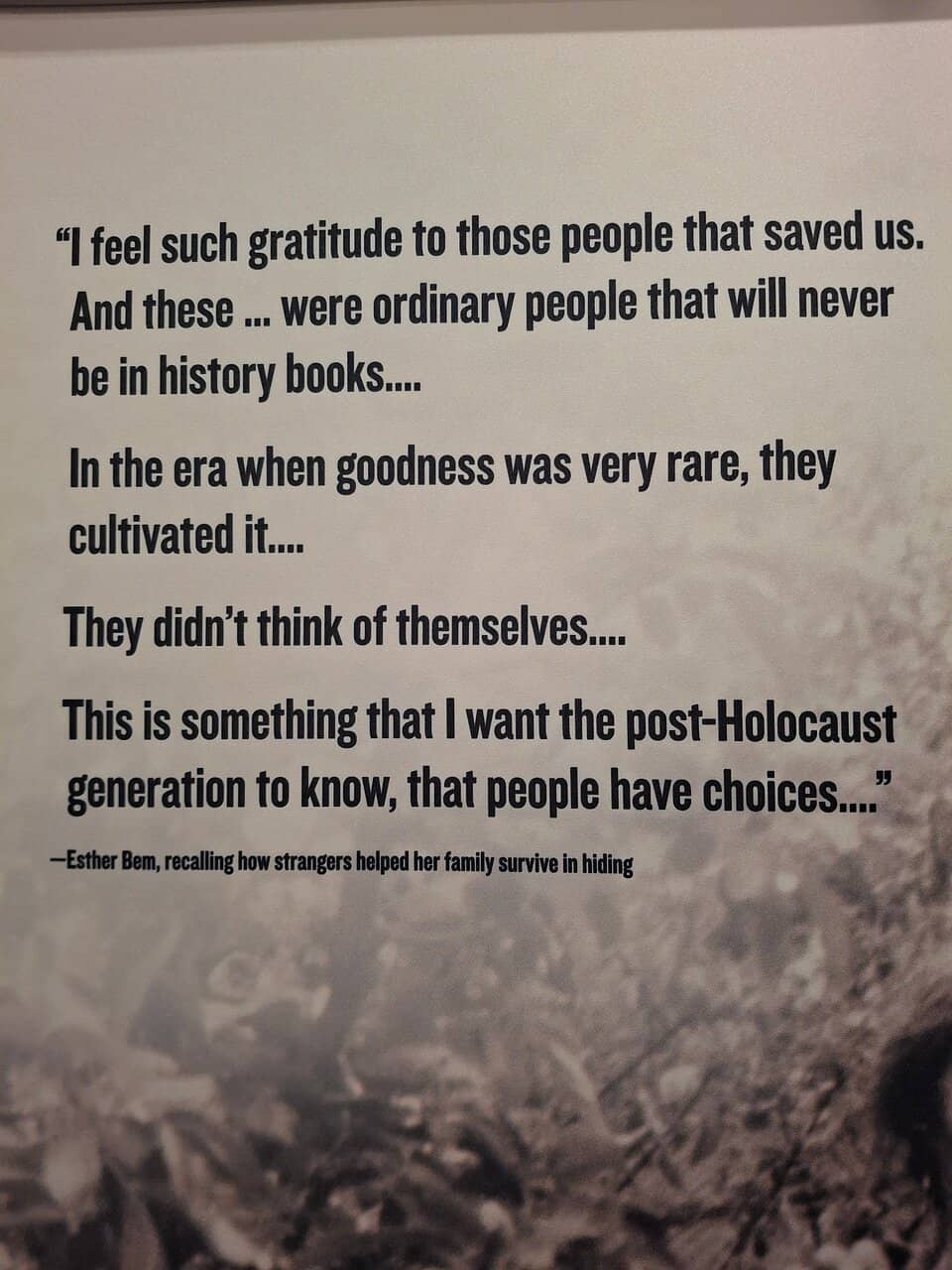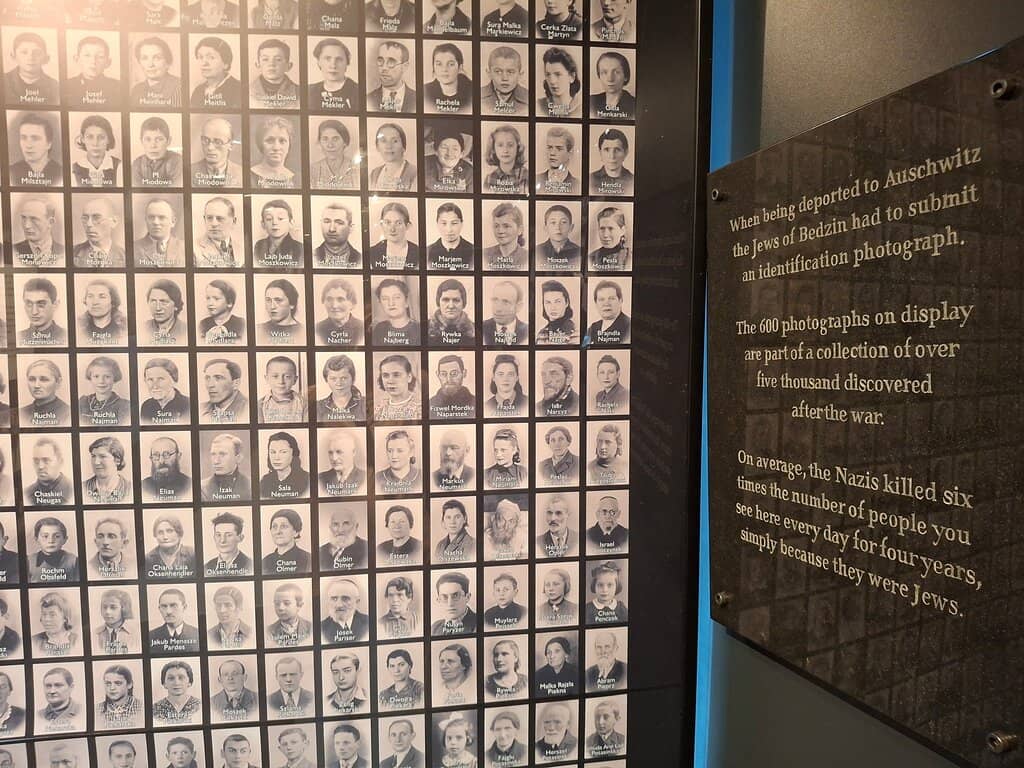
Cape Town Holocaust & Genocide Centre Cape Town
A deeply moving center offering a profound look at the Holocaust and genocide, emphasizing personal stories and the importance of remembrance.

Highlights
Must-see attractions

Social
From TikTok & Reddit
Best Time
Fewer crowds, more reflection time

Cape Town Holocaust & Genocide Centre Cape Town
Best Time
Fewer crowds, more reflection time

Highlights
Must-see attractions
A deeply moving center offering a profound look at the Holocaust and genocide, emphasizing personal stories and the importance of remembrance.
"It shows the true evil of war and man's pursuit for power. Go and see it but plan something happy afterwards because it is haunting."

Allocate Ample Time
Take your time walking through; there's much to see and absorb. Don't rush your visit.
Emotional Preparation
Be ready for a deeply moving and potentially heartbreaking experience.

Highlights
Discover the most iconic attractions and experiences

Personal Accounts
Exhibits
Hear directly from survivors through personal stories, faces, and names that make history deeply real and moving.

Humanity of Victims
Exhibits
Experience a vivid reminder of a terrible time, reflecting the humanity of victims and the tragedy of the Holocaust.

Challenging Exhibits
Main Exhibition
Provocative and educational displays that challenge viewers and convey the casual cruelty inflicted during the Holocaust.
Plans like a pro.
Thinks like you
Planning Your Visit
Prepare for an Emotional Journey
Free Entry with ZA ID
Best Times
Insider Tips
from TikTok, Instagram & Reddit
Allocate Ample Time
Take your time walking through; there's much to see and absorb. Don't rush your visit.
Emotional Preparation
Be ready for a deeply moving and potentially heartbreaking experience.
Free Entry for SA Residents
Bring your ZA ID for free admission.
Not for Young Children
The content is too horrific for casual viewing by young children.
Tips
from all over the internet
Allocate Ample Time
Take your time walking through; there's much to see and absorb. Don't rush your visit.
Emotional Preparation
Be ready for a deeply moving and potentially heartbreaking experience.
Free Entry for SA Residents
Bring your ZA ID for free admission.
Not for Young Children
The content is too horrific for casual viewing by young children.
Plan for Decompression
Consider a happy activity afterward to process the experience.
What Travellers Say
Reviews Summary
Visitors consistently describe the Cape Town Holocaust & Genocide Centre as a deeply moving, heartbreaking, and profoundly impactful experience. While not a place for 'love,' it's lauded for its excellent presentation, personal accounts, and ability to educate and challenge visitors. Some find it haunting and recommend planning a happier activity afterward, and it's strongly advised against for young children due to its disturbing content.
"They say the best way to experience a story is by hearing it from the people themselves. This was such a deeply heartbreaking walkthrough. Personal accounts of experiences, seeing faces, names made it all more real. You cannot help but feel touched. It shows the true evil of war and mans’ pursuit for power. Go and see it but plan something happy afterwards because it is haunting…"
lamise inglis
"Really worth a visit if history interests you...but it goes much deeper than that. Remember it's closed on a Saturday. Entrance is free if you take your ZA identity document"
Mark Timm
"How do you say you "loved" this centre? It provokes, educates, challenges - but love no. The content is too disturbing for a word like “love”; instead, I felt humbled by the willingness of the survivors to share their stories with another generation.
This is not for children – it’s too horrific for a casual viewer and requires time to decompress once you have been here.
The exhibits all convey not only the tragic history, but has on full display examples of the casual cruelty that people inflicted on each other with brutal efficiency.
If this doesn’t not move you, you lack some humanity because it dawns on one that despite all of this, there were indeed survivors who made it out to tell their stories.
Entrance is free though they do require a great deal of personal information and there was a wide variety of people, culture and language when I visited.
There was also a guide, but it was not clear whether she was attached to the centre or an independent operator."
Duncan Alfreds
What People Like
What People Dislike
Frequently Asked Questions
🚇 🗺️ Getting There
The center is located in the city center of Cape Town. Public transport options like MyCiTi buses are available, and it's accessible by car with nearby parking.
Yes, it's situated in the city center, making it relatively easy to locate. It's described as a lovely museum in the city.
The center is closed on Saturdays. It's advisable to check their official website for the most up-to-date opening hours for other days.
Yes, the center can accommodate large groups, including students. However, be mindful of the impact on individual reflection time.
While not explicitly detailed in all sources, its city center location suggests that public parking facilities are likely available nearby.
🎫 🎫 Tickets & Entry
Entrance is free for South African residents who present their ZA identity document.
While not always explicitly stated, for group visits or to ensure entry, it's often recommended to inquire about booking in advance, especially for educational groups.
South African residents need to present their ZA identity document for free admission. The center may also request other personal information.
Information on discounts for international visitors is not readily available. It's best to check the official website or contact the center directly for current pricing.
While not explicitly mentioned in all sources, donation boxes or information on how to support the center are often available at such institutions.
🎫 🧭 Onsite Experience
You'll find exhibits featuring historical artifacts, information, and multimedia displays that reflect the tragic history of the Holocaust and the humanity of its victims.
The content is described as too horrific for casual viewers and not suitable for young children. It requires a mature understanding and emotional readiness.
Visitors are advised to take their time and allocate ample time to walk through the exhibits, as there is much to absorb.
There may be guides available, but their affiliation (center-attached or independent) might not always be clear. It's worth inquiring upon arrival.
The atmosphere is deeply moving, thought-provoking, and often heartbreaking. It aims to educate, challenge, and evoke a sense of humility.
📸 📸 Photography
Photography policies can vary. It's generally advisable to check for signage at the entrance or ask staff, as many sensitive exhibits may prohibit photography to respect the solemnity of the space.
Without explicit information, assume that photography might be restricted in most exhibition areas. Common areas like the entrance or gift shop might be exceptions.
If photography is permitted in certain areas, focus on architectural details or general ambiance rather than sensitive exhibits.
Yes, photography of the exterior is generally permitted and can be a way to document your visit.
Common hashtags used by visitors include #holocaust #genocide #capetown #southafrica.
For Different Travelers
Tailored advice for your travel style
👨👩👧 Families with Kids
It's crucial to have conversations with children before and after the visit to help them process the information. Consider focusing on the themes of resilience, remembrance, and the importance of human rights, rather than dwelling on the graphic details. Planning a lighthearted activity immediately after the visit can help balance the emotional impact.
📚 Students and Educational Groups
Booking in advance is highly recommended for student groups to ensure a smooth experience. While admission is free for South African residents with an ID, group organizers should confirm any specific procedures or potential group rates for international students. The immersive nature of the exhibits provides a profound learning opportunity, but educators should be prepared to guide students through the emotional intensity of the content.
Deep Dives
In-depth insights and expert knowledge
The Emotional Impact of the Exhibits
It's crucial for visitors to be emotionally prepared. The center doesn't shy away from depicting the 'casual cruelty' and brutal efficiency with which atrocities were committed. This intensity means it's not recommended for young children or those seeking a lighthearted outing. The profound nature of the exhibits often leaves visitors in need of time to decompress, leading many to suggest planning a more uplifting activity afterward.
Despite the somber nature, the center is also praised for its excellent presentation and its ability to reflect the humanity of the victims. It serves as a powerful reminder of a terrible time in human history and the importance of remembering and learning from it.
Understanding Admission and Visitor Information
While the center is generally open on weekdays, it's important to note that it is closed on Saturdays. For those planning a visit, especially with larger groups or educational institutions, it's wise to check the official website for the most current opening hours and any specific booking requirements. The center can accommodate large groups, as evidenced by visits from student groups, but it's always best to confirm arrangements in advance.
International visitors should verify admission fees and any potential booking procedures directly with the center, as specific details for non-residents are not always widely publicized. The overall experience is described as well-put-together and a must-see for those interested in history.






Social
from TikTok, Instagram & Reddit